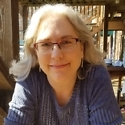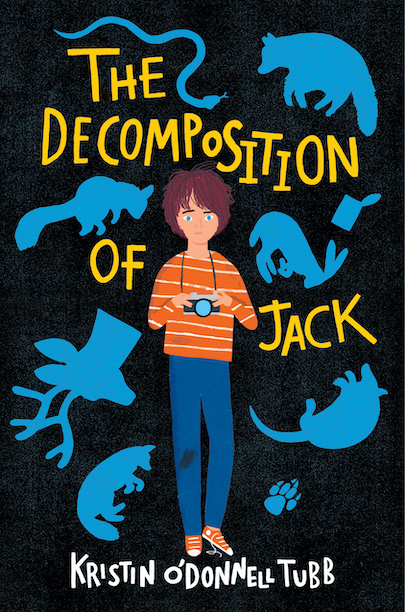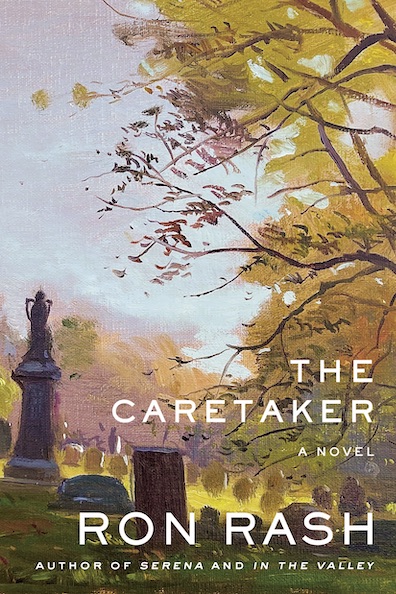What Might Have Been
A sudden death on campus uncovers the dark side of college life
“Had I changed us, made us friends, would I have turned his fate?” asks Leah Gavin, the narrator of Sheri Joseph’s new novel, Angels at the Gate. “At a stretch, my best influence could have held no more power than chance. An alteration in plans, a step to the left instead of the right, caused somehow by me. How could I, how could any of us, know what might have been? This pointless question never goes away.”

The novel opens in 1986, when Leah is a college sophomore at Rockhaven University, a school loosely based on The University of the South in Sewanee, Tennessee, where Joseph was a student in the 1980s. On the author page of her publisher’s website, Joseph writes, “I changed its name … but kept its location, its physical beauty, and every detail that worked for fiction: its dress code, honor code, its array of arcane traditions and roots in the Confederacy, its culture at once conservative and marked by excess, especially in drinking.”
Leah, with a dead mother and a distant father, finds herself quite unexpectedly adrift in this rarified setting, thanks to an academic scholarship. Although intelligent, pragmatic, and ambitious, she doesn’t fit in with the culture of Rockhaven, where most of the students are sons and daughters of privilege who know all the rules and were raised expecting to matriculate there. Early on, she falls in with the fraternity brothers of Gamma Chi, many of whom become like family: “As an only child, I had yearned for brothers more than sisters, the sort derived from books or after-school specials who would include me in their adventures as one of them. Nonfictional boys, though, were new to me. I didn’t yet know I’d have to shrug off a lot or learn to slap back if I meant to keep even the sweetest of them as friends.”
 Quickly becoming a self-described “girl-pal at a frat house,” Leah characterizes the brash know-it-all Brantley Simms as perhaps her least favorite member (“I might as well admit I hated him, avoided him by habit”). Yet when he falls to his death on campus their sophomore year, Leah is skeptical of the official ruling of “accident” and feels inexplicably drawn to investigate further. As she quietly conducts her research, interviewing Brantley’s frat brothers and friends and learning more about the history, traditions, and unspoken prejudices of Rockhaven University, she is drawn into a web of secrets and lies, uncovering what she believes to be a conspiracy. Leah begins to suspect murder and realizes that her involvement comes at a cost — possibly threatening her own safety and endangering those she loves.
Quickly becoming a self-described “girl-pal at a frat house,” Leah characterizes the brash know-it-all Brantley Simms as perhaps her least favorite member (“I might as well admit I hated him, avoided him by habit”). Yet when he falls to his death on campus their sophomore year, Leah is skeptical of the official ruling of “accident” and feels inexplicably drawn to investigate further. As she quietly conducts her research, interviewing Brantley’s frat brothers and friends and learning more about the history, traditions, and unspoken prejudices of Rockhaven University, she is drawn into a web of secrets and lies, uncovering what she believes to be a conspiracy. Leah begins to suspect murder and realizes that her involvement comes at a cost — possibly threatening her own safety and endangering those she loves.
Readers of Angels at the Gate should prepare to be plunged deeply into the rhythms of young adulthood and college life and all that goes with them — a non-stop and confusing soup of academic challenges, partying, homesickness, romance, loneliness, freedom, exhilaration, and self-doubt. Add to this a dark and twisty mystery. Joseph characterizes Angels at the Gate as “my effort at a memoir in which everything is true, except for all of the people and all of the events. It’s about college music from the 80s and English literature; it’s about the thrill of creating oneself in youth and the paths taken and not taken that lead to regret.”

Tina Chambers has worked as a technical editor at an engineering firm and as an editorial assistant at Peachtree Publishers, where she worked on books by Erskine Caldwell, Will Campbell, and Ferrol Sams, to name a few. She lives in Chattanooga.


